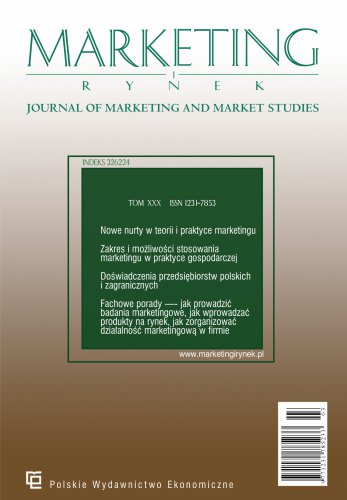Journal of Marketing and Market Studies 06/2023
ISSN: 1231-7853
Pages: 56
Publication date: 2023
Place publication: Warszawa
Binding: paperback
Format: A4
Publication date: 2023
Place publication: Warszawa
Binding: paperback
Format: A4
DOI: 10.33226/1231-7853.2023.6.1
JEL: M31
DOI: 10.33226/1231-7853.2023.6.2
JEL: M37; M39
DOI: 10.33226/1231-7853.2023.6.3
JEL: D10, Q18
DOI: 10.33226/1231-7853.2023.6.4
JEL: M31
DOI: 10.33226/1231-7853.2023.6.5
JEL: D83, M12, O31, O32
| Odbiór osobisty | 0 € |
| Kurier Inpost | 4 € |
| Kurier FedEX | 4 € |
| Inpost Paczkomaty | 4 € |
| Free delivery in Reader's Club | from 47 € |

